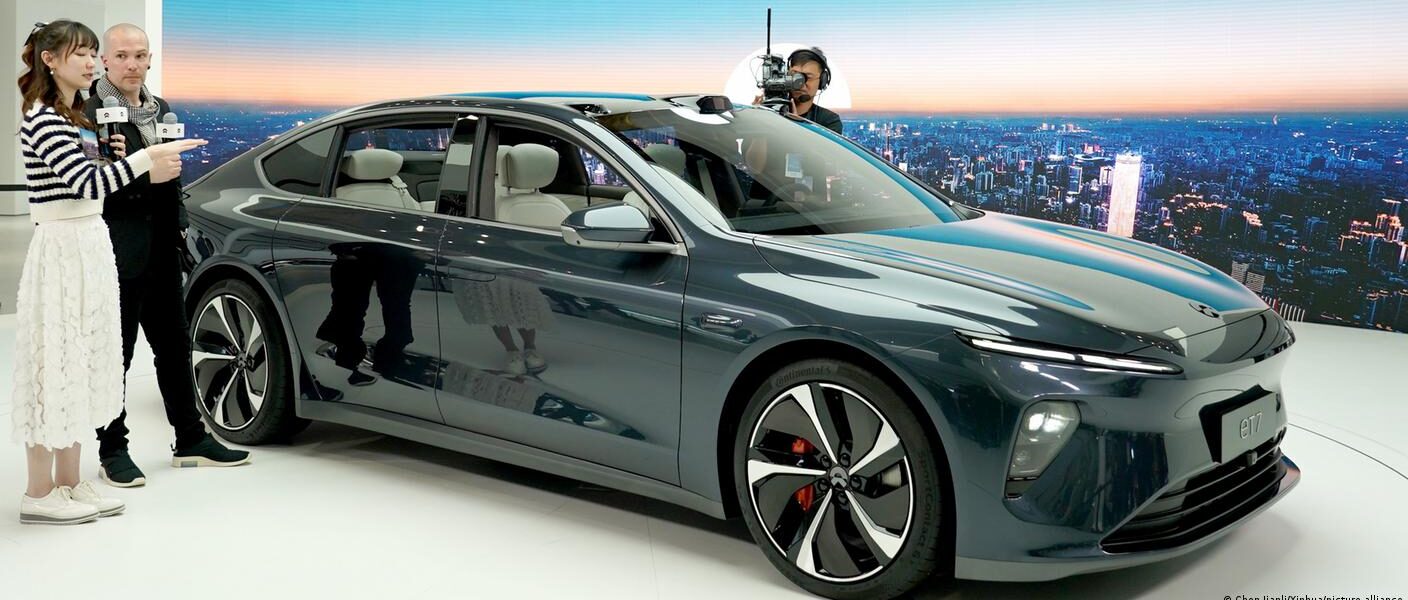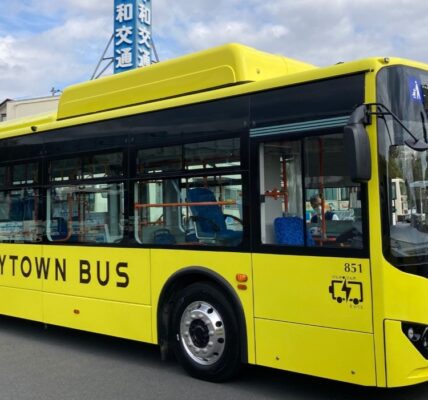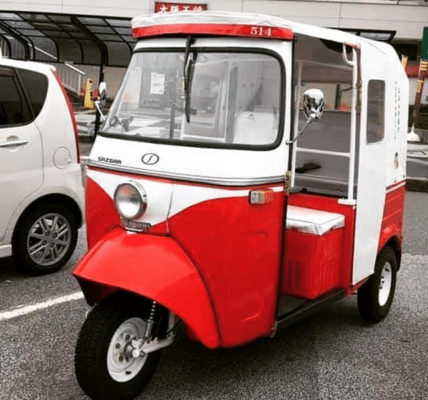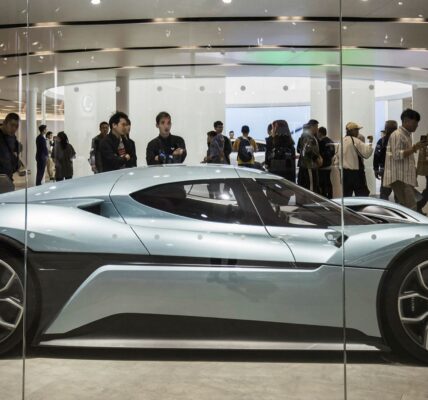For some, it would be a dream car. 653 horsepower. Zero to 100 kilometers per hour in 3.9 seconds. All-electric, all-wheel drive with a range of 500-700 kilometers (310-434 miles) depending on battery capacity. Base price €69,900 ($68,200).
It is the new top-of-the-line eT7 sedan from Chinese electric-vehicle manufacturer Nio (pictured above). The first ones are expected in Europe in October. Delivery of other models like the eL7 SUV will start in January. The company is taking orders for its smaller eT5, which is supposed to compete with Tesla’s mid-range Model 3.
Also new in Europe is the idea of battery changing stations. If drivers don’t want to charge by cable, they can have a low battery exchanged for a full one. The whole process should only take a few minutes. So far, there is only one such station in Germany, but 19 more are to be added by the end of the year. Another 100 in 2023.
This isn’t China’s first test ride in Europe. An attempt by Chinese manufacturers to enter the European market 17 years ago ended in disaster. A Landwind off-road vehicle failed in an official crash test. The damage to its image was even more devastating.
But that was a long time ago and now the cards are being reshuffled. The Munich-based car rental company Sixt recently announced they would order 100,000 electric cars from Chinese manufacturer BYD by 2028. The first batch is expected to arrive later this year.
For BYD it is an important victory in Europe. The company, which is already one of the largest battery manufacturers in the world, could become the largest electric-car producer in the medium term and oust Tesla from the top.
In addition to BYD and Nio, companies such as SAIC, Geely and Great Wall Motors, or startups such as Xpeng, are making strides. Experts think that around 20 Chinese brands could soon be rolling in Europe. And they have one advantage in particular.
They produce e-vehicles in different vehicle classes, while large European car manufacturers — including German leaders — mostly only offer electric vehicles in the upper price segment. European manufacturers are additionally suffering from a shortage of parts and chips due to problems in the supply chain, which has led to reduced production.
But can the Chinese really become serious competition for Mercedes, BMW or Volkswagen in Europe?
“I don’t think even one of the Chinese manufacturers can really compete on an equal footing with the European, Japanese and Korean manufacturers in Europe,” said Jochen Siebert, founder of the consultancy JSC Automotive, which specializes in the Chinese car market and has offices in Shanghai and Stuttgart.
For Siebert, the strengths of Chinese manufacturers lie mostly in “various electronic gimmicks,” as he puts it. Things like karaoke functions for passengers or augmented reality gadgets. That may attract customers in China, but German buyers in the higher price segment are a bit more conservative and tend to shy away from too much electronics.
There are some other fundamental problems. Basically, no Chinese manufacturer can stand on its own. Without constant support from the government at the local and state levels, most, if not all, would likely not exist today. “Knowing that the Chinese state is slowly running out of money for more subsidies, Chinese manufacturers are rushing abroad and trying their luck there,” said Siebert.
Gregor Sebastian, a car analyst at the Mercator Institute for China Studies in Berlin, also has reservations. He believes that market access restrictions for foreign competitors and government subsidies for Chinese manufacturers has been a big part of their success to date.
However, this support could soon turn into a weakness for Chinese manufacturers in Europe. The EU is taking a closer look at Chinese market distortions and protectionism. “New rules on competition-distorting subsidies from third countries could turn into a serious problem for Chinese e-vehicle manufacturers,” said Sebastian. Add to that unequal market access and a general increase in geopolitical differences.
“Certainly Chinese manufacturers have a chance,” emphasized Matthias Schmidt, a management consultant from Berlin who specializes in the electric car market. “After the success of Tesla, you would be a fool to write them off.” Tesla managed to enter the market when other manufacturers left the door wide open and were unwilling to release loss-making EVs.
Due to high production for the domestic market, Chinese manufacturers have achieved cost advantages in expensive battery technology. This could benefit volume brands such as BYD or SAIC’s MG when expanding abroad more than it would help premium brands like Nio.
Stefan Bratzel, director of the Center of Automotive Management in Bergisch Gladbach, Germany, has been analyzing the innovative strength of electric car manufacturers for years. “Chinese automobile manufacturers such as BYD, Nio or SAIC are becoming better competitors on the European markets,” he said. “They are becoming more innovative overall and quality is improving due to cooperation with Western suppliers.”
“A new tech and supplier industry is emerging in China and Chinese manufacturers will be able to draw from this new ‘horn of plenty’,” believes Ferdinand Dudenhöffer, head of the Center for Automotive Research in Duisburg, Germany.
It’s not about a single company that would be particularly interesting like Tesla. It’s about an entire industry. And that is exactly China’s advantage: the speed at which innovations are being developed and implemented. “Let me put it this way, Tesla is unique, but China is a broad movement that is creating many Teslas,” said Dudenhöffer.
The expert expressly warns against an “anti-China policy” that would harm German car manufacturers more than the Chinese. “We would lose a lot more. And being left out of the Chinese market would hit the German auto industry’s innovative strength — it’s most sensitive spot. Today, innovations come from China and those who isolate themselves from them will lose customers.”







